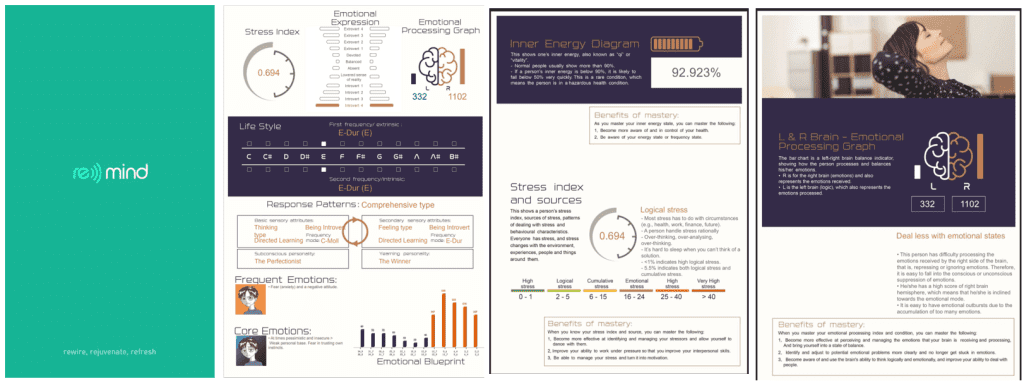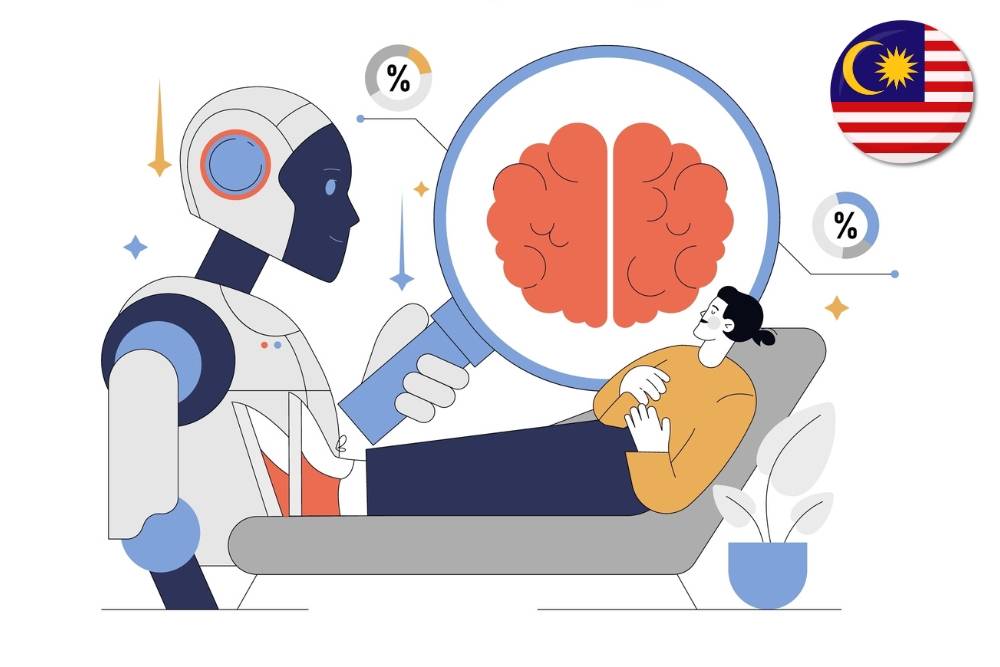As mental health issues surge in Malaysia, the nation faces urgent challenges in access to care and stigma. Could AI powered solutions bridge the gap and offer hope for a more accessible mental health landscape?
Mental health issues are rising sharply in Malaysia. Depression rates have doubled between 2019 and 2023, according to a national survey by the Ministry of Health. Suicide rates have drastically risen from 609 cases in 2019 to 1,087 last year, as Deputy Prime Minister Datuk Seri Ahmad Zahid Hamidi revealed earlier this year.
The government and society must prioritise mental health awareness and support services to tackle these issues effectively. Yet, the shortage of mental health professionals and persistent stigma often discourage people from seeking help.
In light of these findings, Malaysia has been galvanised to turn to innovative solutions – including AI – to provide accessible and timely support to individuals in need.
Why It’s Hard to Reach Out for Help

Economic pressures and financial burdens heavily contribute to Malaysia’s mental health crisis. At the same time, negative perceptions surrounding mental health further exacerbate the problem.
“There’s still the perception that seeking mental health services means you’re ‘crazy’ or that you have ‘no more hope’” explained Dr Joel Low, President of the Malaysian Society of Clinical Psychology, and Director at The Mind Psychological Services and Training, in The Straits Times.
Confusion and a lack of clear information about mental health also deter many individuals from reaching out for professional support.
“[The stigma around mental health] is further complicated by various understandings and applications of the causes and treatment methods due to our various religions, cultures, and ethical backgrounds.” elaborated Dr Adnan Omar, a Suicidologist and Deputy Chairman at the Malaysia Organisation of Psychospiritual Wellbeing, in Sinar Daily.
Adding to these barriers, Malaysia has an acute shortage of mental health professionals. The country only has one psychiatrist for every 200,000 people – far below the World Health Organization’s recommended ratio of one per 10,000 people.
“Even when you factor in clinical psychologists and counsellors, we’re nowhere near enough to serve the community effectively.” stated Dr Low.
This means that even those willing to consult professionals have tall hurdles to overcome, including long waiting times for public services that can push appointments back by months, or high fees should these individuals choose to defer to private clinics. These challenges pave the way for AI to play a role in addressing mental health needs.
The Augmenting Role of AI in Mental Health Support
Malaysia is just beginning to explore AI’s potential in healthcare, including mental health services.
“The government recognises AI’s potential and is taking steps to promote its adoption. Grants and resources have been allocated to encourage adoption of AI in healthcare.” announced Dr Mohamad Fadli Kharie, Senior Principal Assistant Director at the Ministry of Health, in the New Straits Times.
AI’s ability to process vast amounts of data and deliver personalised insights makes it a valuable tool for mental health support.
Importantly, it provides accessible, private, and non-judgmental options for individuals hesitant to seek professional help.
“Some people no longer need to seek professional consultations for basic mental health services. This accessibility can significantly assist those with minor mental health issues and individuals seeking knowledge to navigate their lives,” approved Dr Adnan, in reference to the use of AI and ChatGPT.
AI-based Mental Health App

One notable AI innovation in Malaysia is an app named Re-Mind, created by Dr Jest Wong, Founder of Westwood Clinic, and his team. This app helps users detect early signs of anxiety, depression and other psychological states.
By analysing vocal aspects like tone and speech rate with AI-based voice biomarkers, Re-Mind produces a mental health report. From there, users get a better understanding of their mental wellness, and are empowered to make more informed choices about their wellbeing.
Since its launch in July 2023, it has already seen over half a million users.
Limitations of AI in Mental Healthcare
While AI offers significant potential, it struggles to understand the subtleties and complexities of cultural and social experiences.
“I think that culture specificity (has not been) learnt yet. Whether it’s medicine, psychology, or any kind of clinical work, we need to be culturally sensitive to specific needs of different people.” remarked Dr Prem Kumar Shanmugam, CEO of Solace Asia, a rehabilitation centre,
Moreover, AI still cannot replace the human touch that is often needed in mental health care.
“At best, they can give basic information and communication, but they don’t yet have that capacity to give you that empathy and that sense of rapport that you look for in a good mental health clinician,” reasoned Dr Maria Hennessy, an Associate Professor of Clinical Psychology at James Cook University.
“And it’s that empathy and rapport that actually accounts for about 50 per cent of the effectiveness of what we do.”
While AI shows great promise in mental healthcare, it cannot replace human expertise and compassion. Its limitations still call for a more holistic approach. By balancing AI’s capabilities with culturally sensitive, empathetic care, Malaysians can receive the best possible support for their mental health needs.

